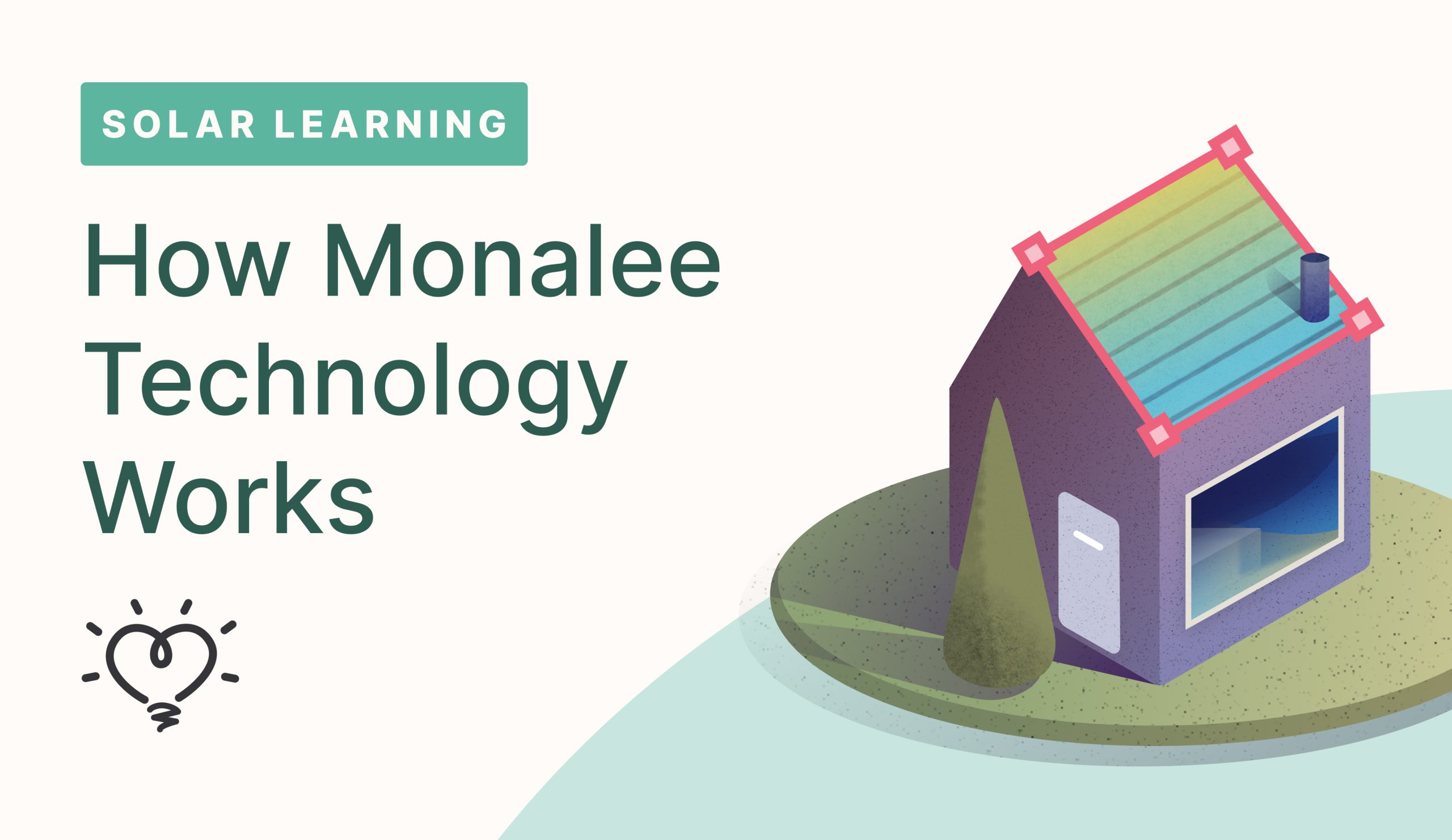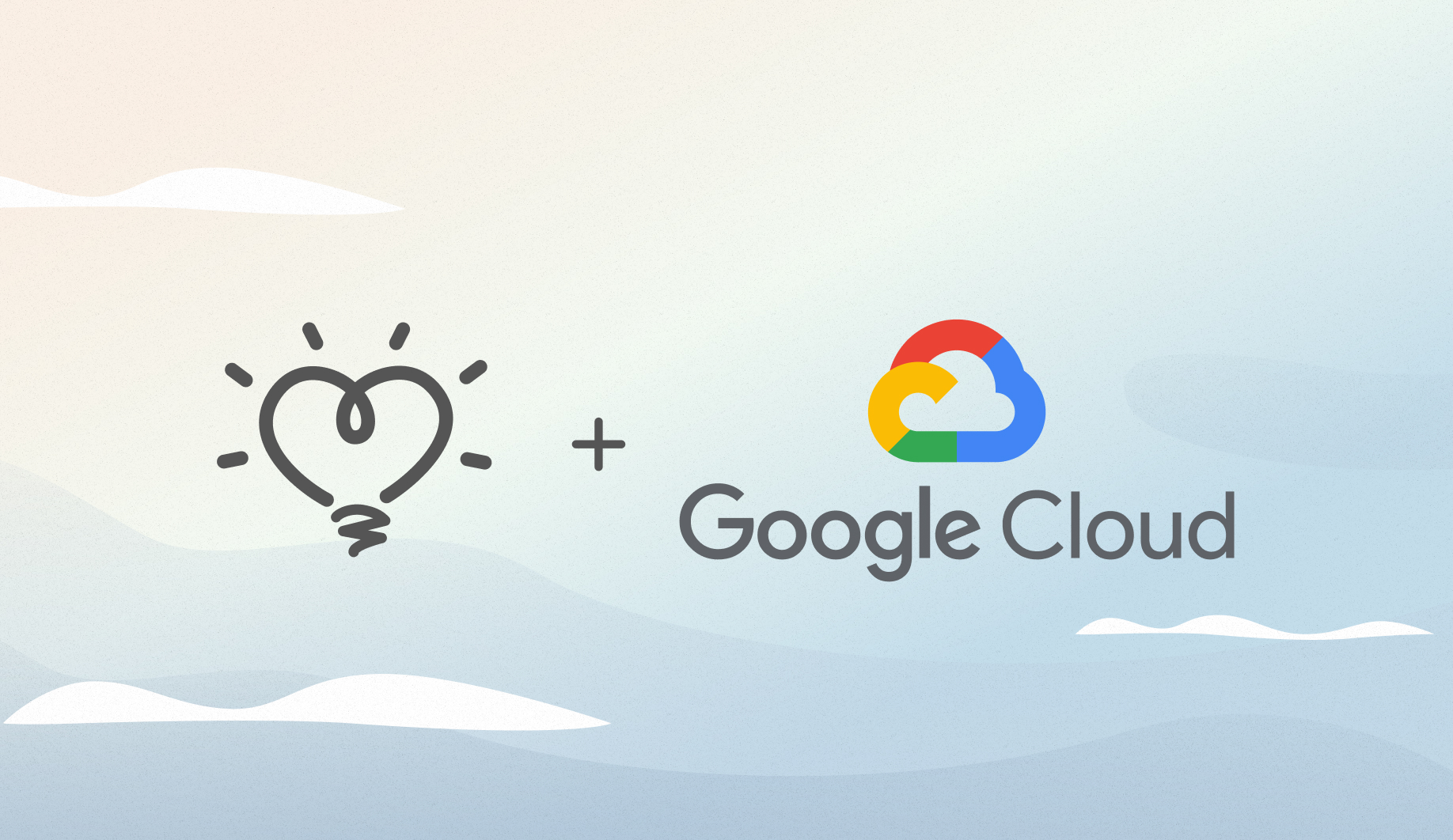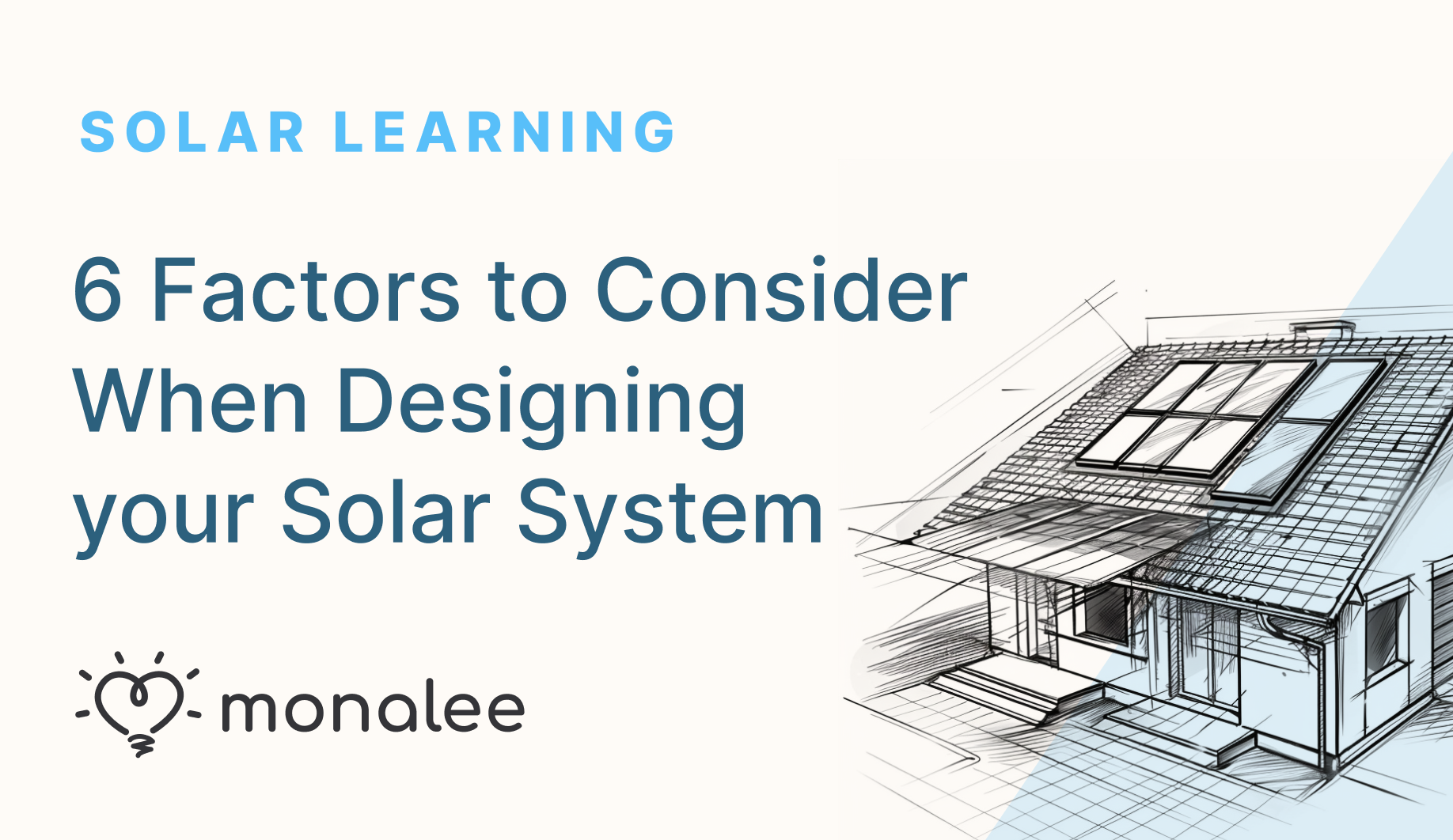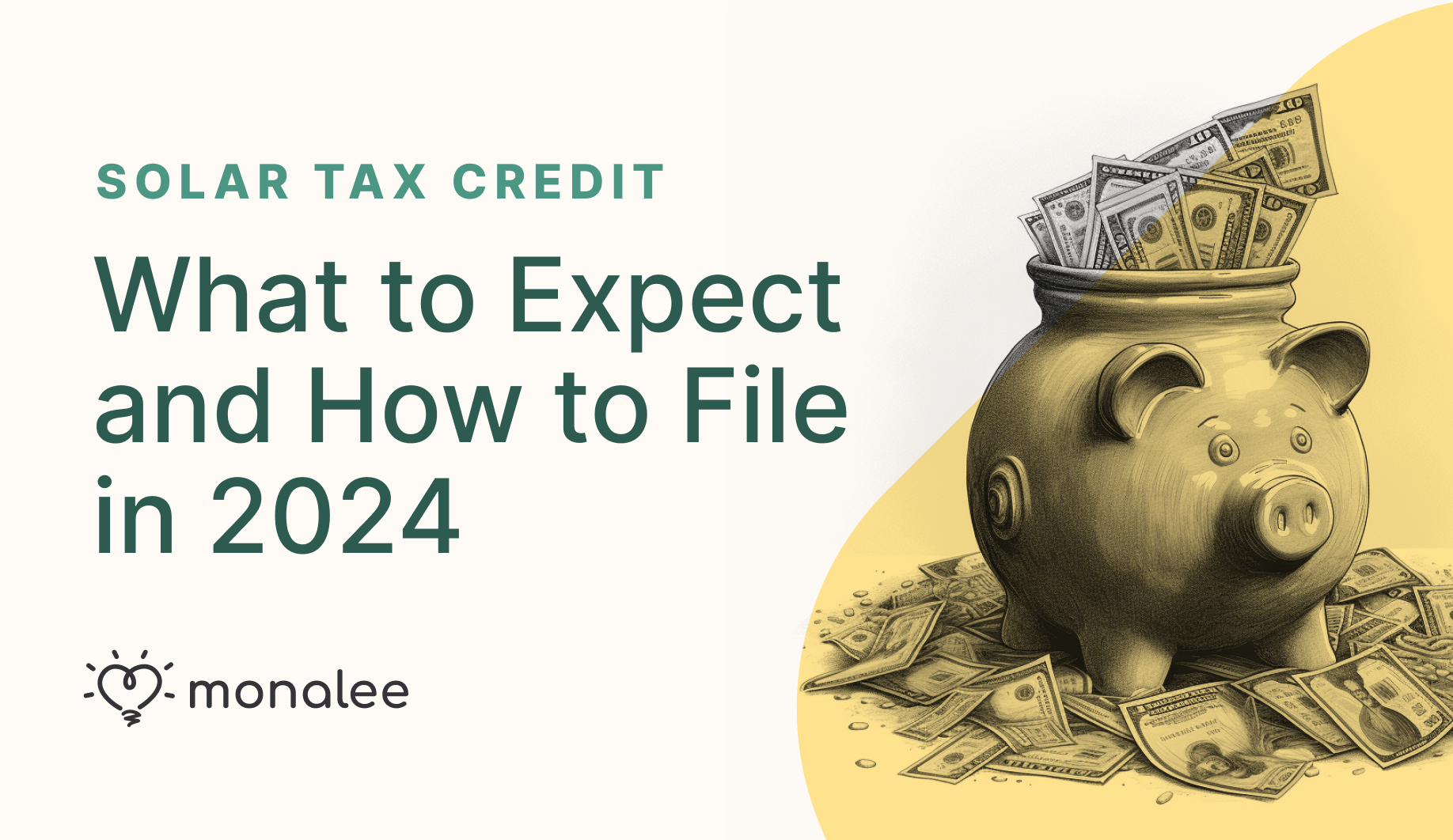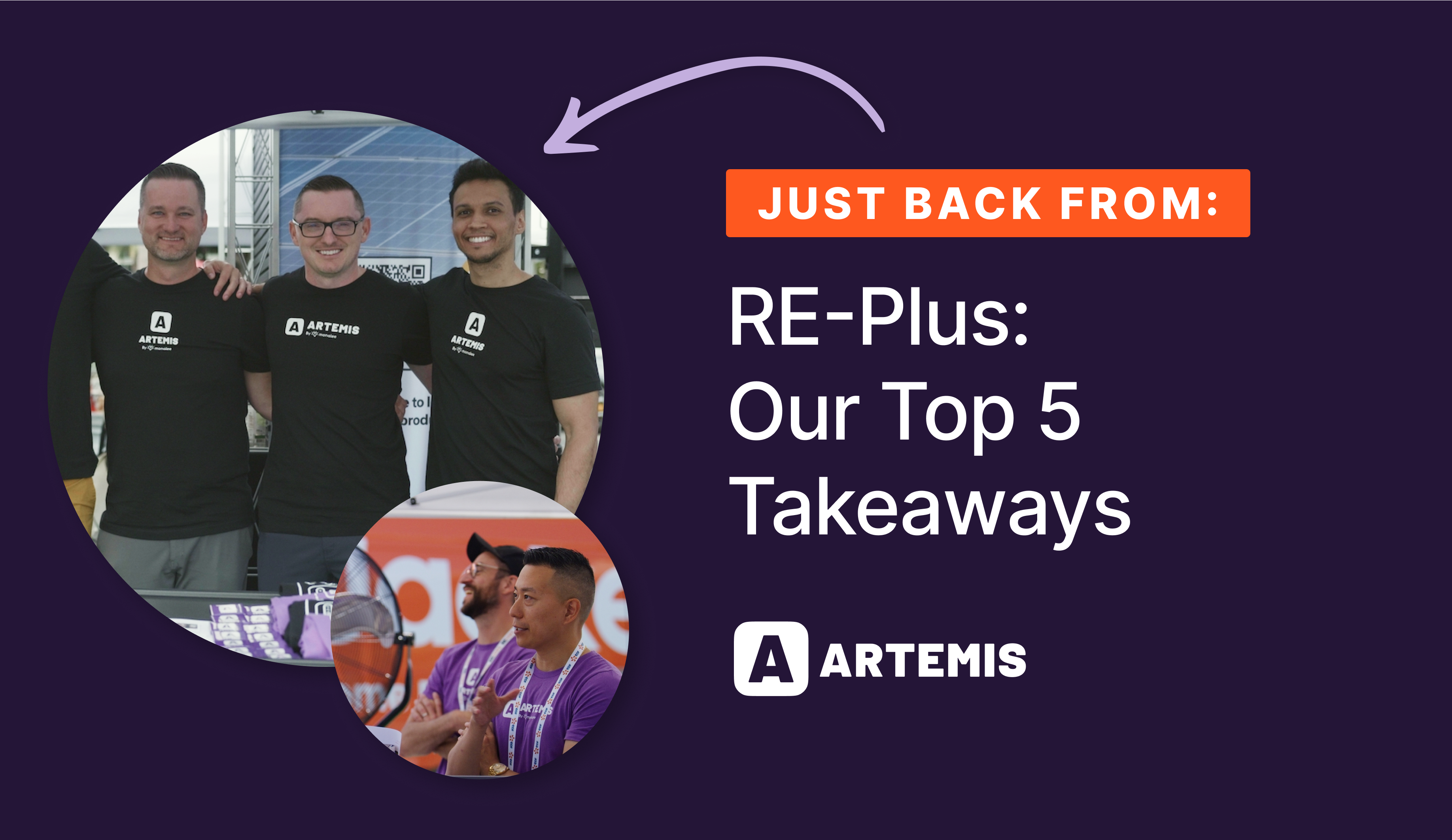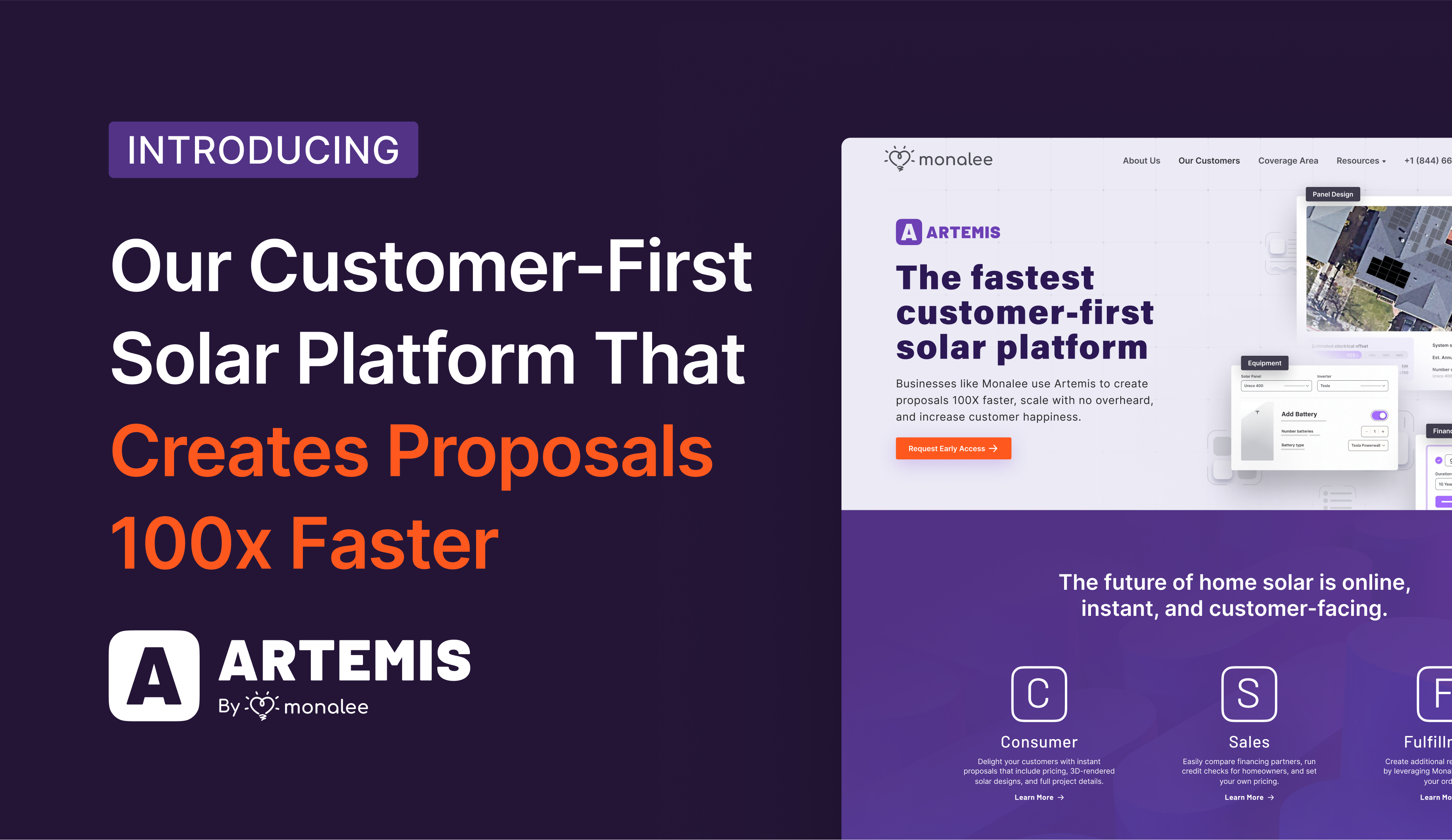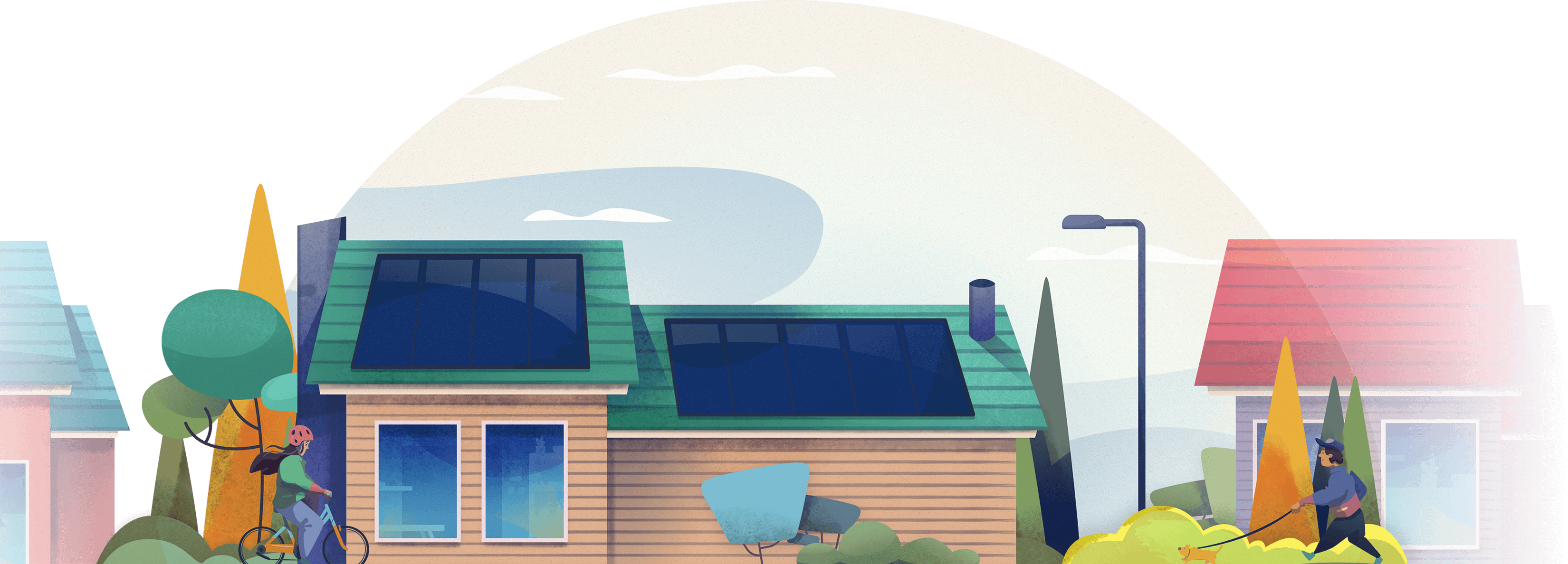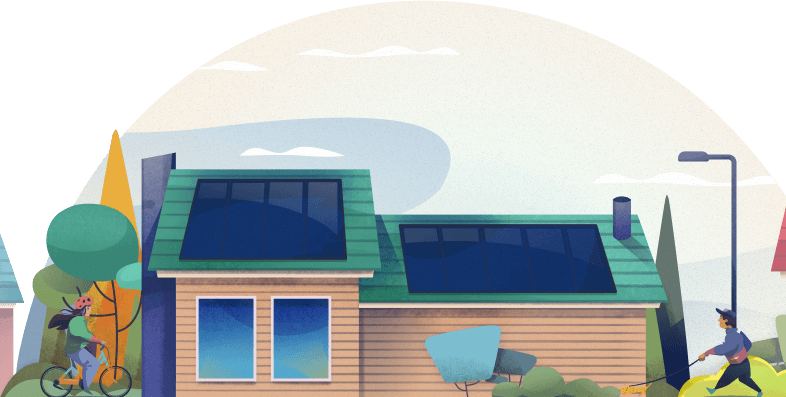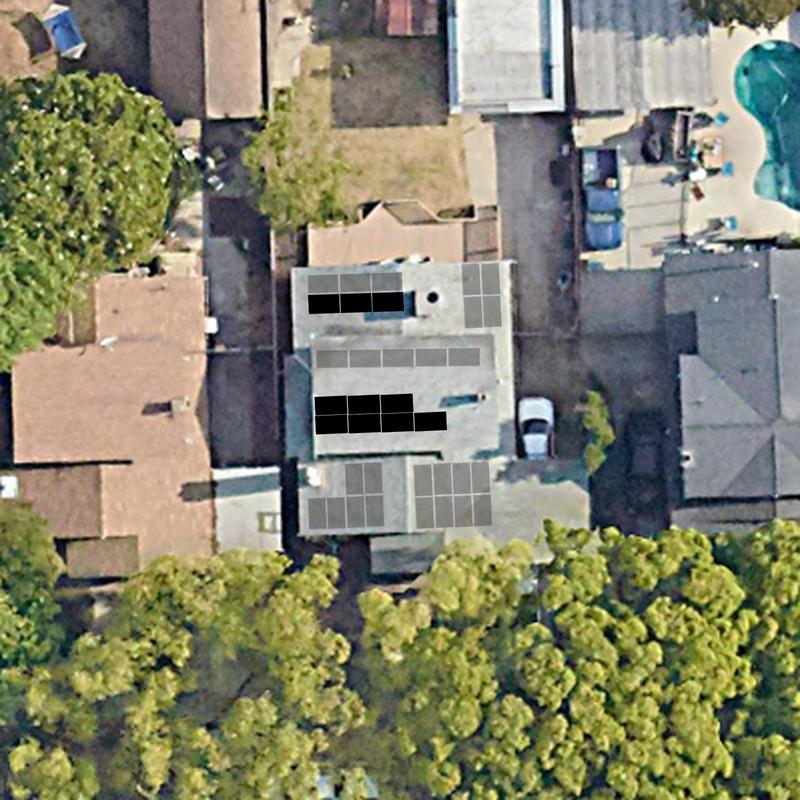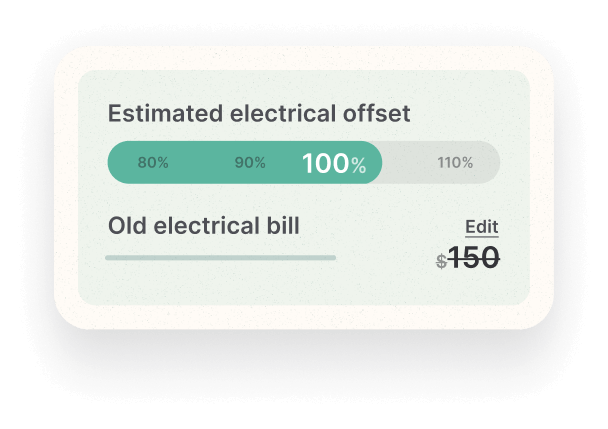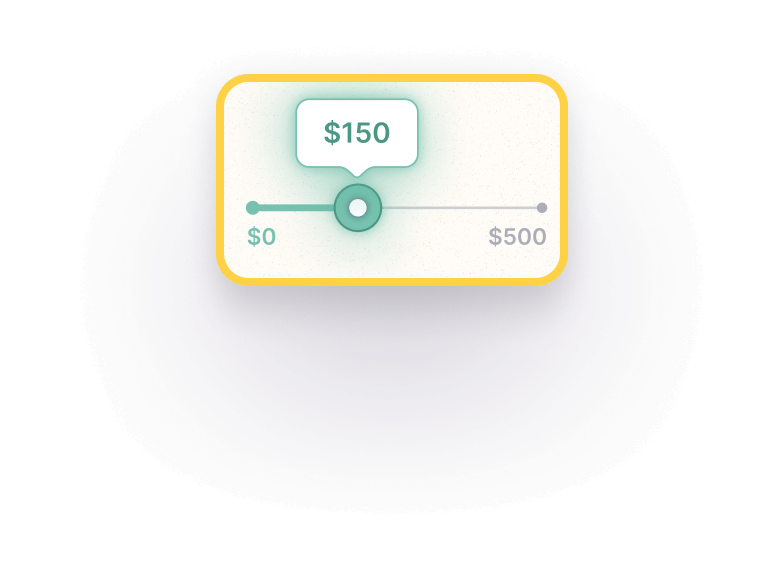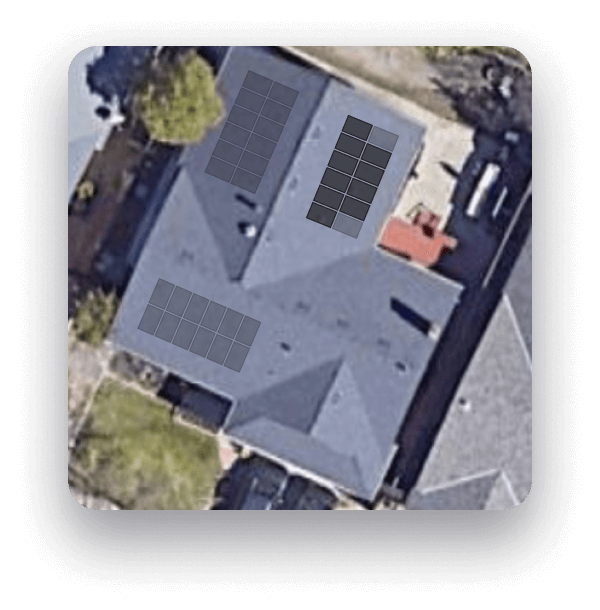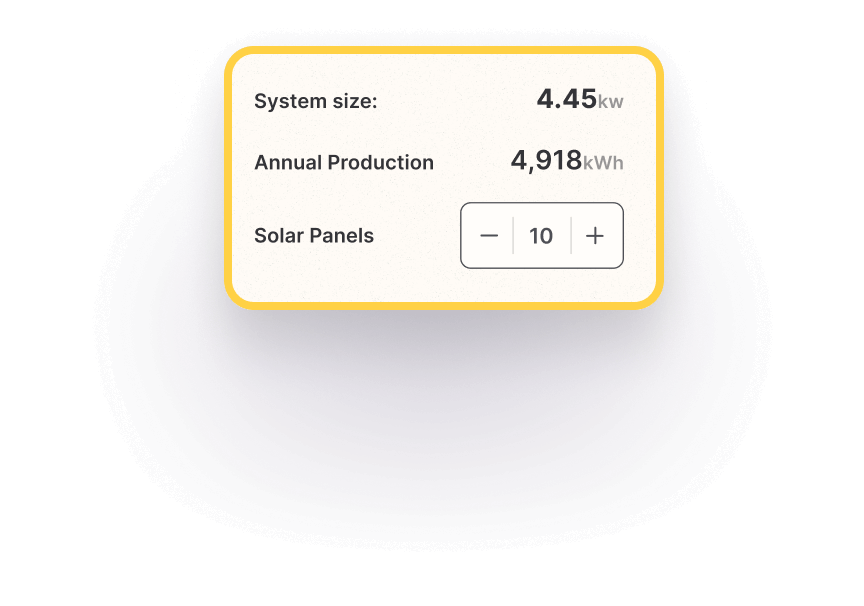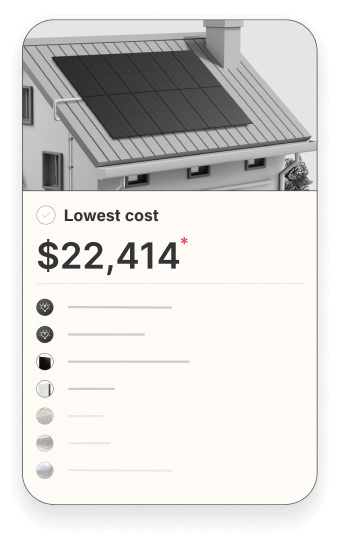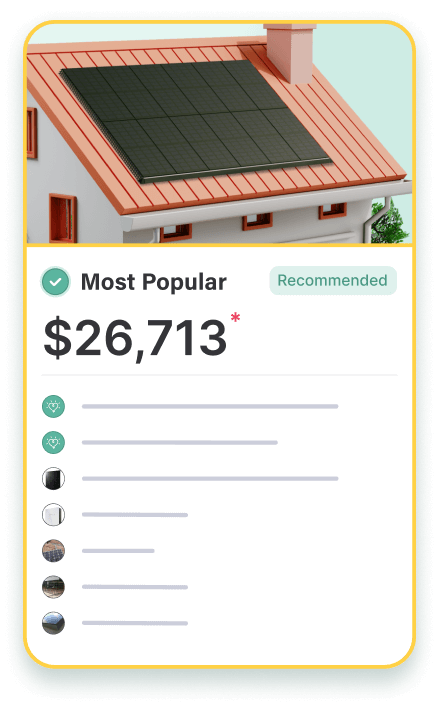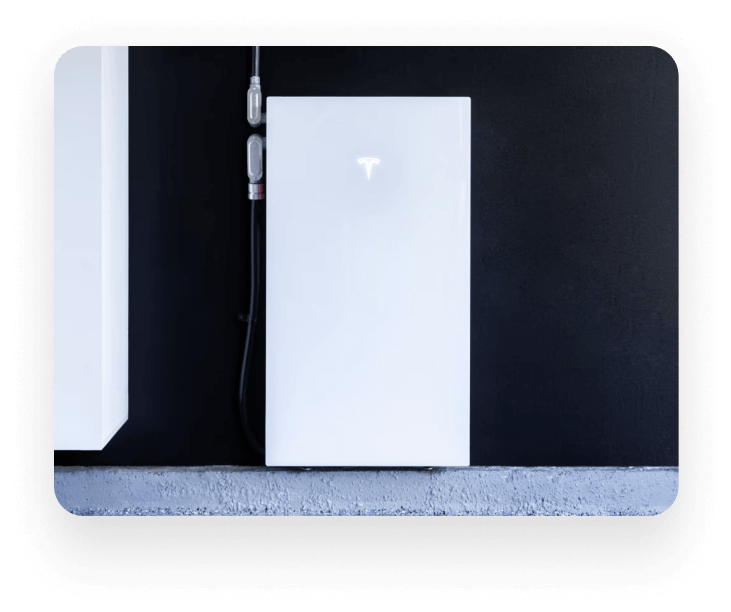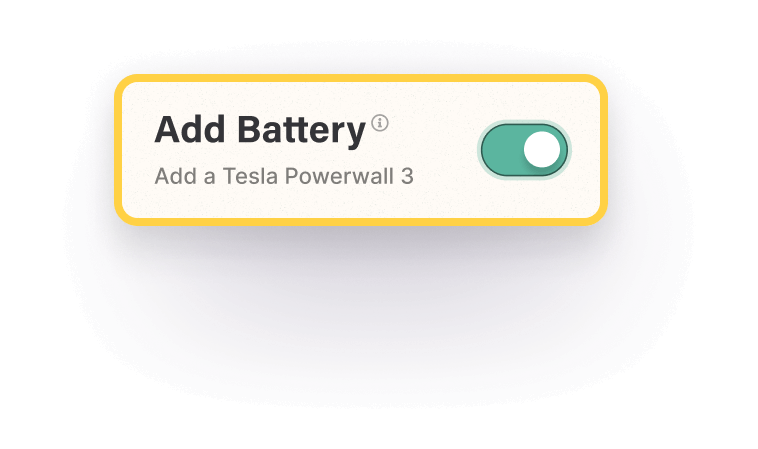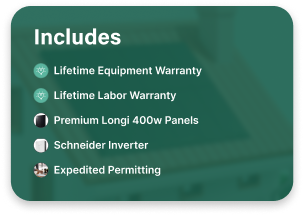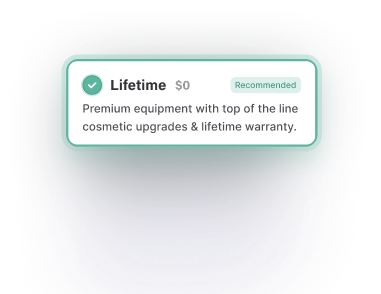Here's the lowdown on just how we're able to cut the price of going solar in half.
A big part of our mission here at Monalee is to accelerate the solar industry. We want to make it more trustworthy, affordable through transparent pricing, and accessible without the hassle of pushy sales tactics. In our effort to maintain transparency, it’s important that we share a bit more about how our proprietary Monalee technology works.
At the start of our journey, we focused our energies into building out the initial technology which includes our machine learning and computer vision algorithms. Today, our technology is more sophisticated than ever and at the same time, it’s always improving. Our team actively researches and identifies new ways to increase accuracy and solar system design.
Here’s a breakdown of how our technology works and why it’s so effective in predicting the amount of money you’ll save by making the switch.
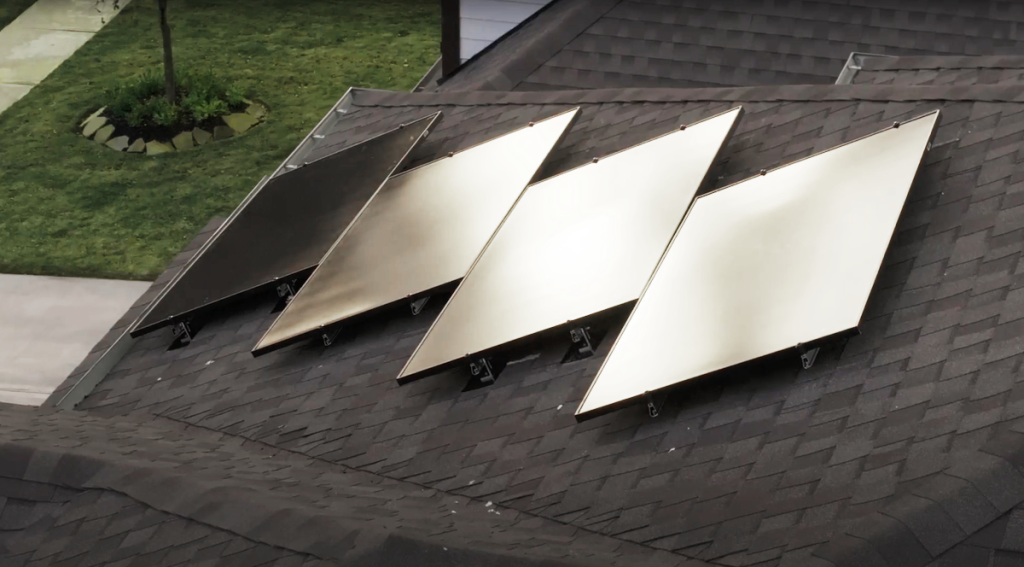
1. Our machine learning extracts a roof’s plane, azimuth, and pitch
Depending on a roof’s azimuth, pitch, and plane, we get a good idea of how much energy a solar system will produce.
Roof azimuth
This is the navigational direction that solar panels face. For example, a roof in the northern hemisphere that faces south will get the most sun and therefore will be the most efficient.
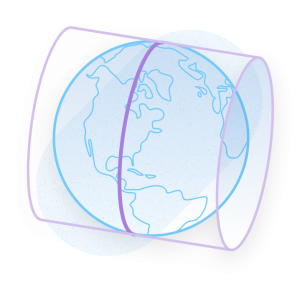
Roof pitch
The pitch of a roof refers to the angle of a roof. Think of it as a slope or slant. A roof pitch between 15 and 40 degrees will keep solar panels in the sun longer compared with other setups.

Roof plane
A roof’s plane is an even, uniform, or smooth part of the roof with the same pitch and azimuth.
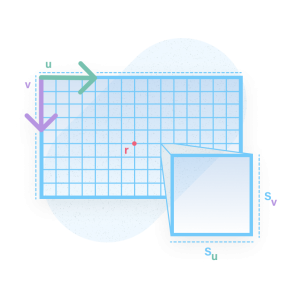
2. It then identifies roof obstacles like chimneys and roof vents
Contrary to popular belief, solar panels only need a few hours of strong sunlight to power a home. When it comes to how much energy a system will generate, it’s the number of hours of sun–rather than the temperature of the air–that matters most.
When designing a solar system, we identify potential roof obstacles and work around them. Roof obstacles are physical elements placed on the roof–chimneys and roof vents to name a few–that prevent the installation of a solar panel.
We also take into account whether there are trees or other objects that might cast shade on your solar panels. When there’s a shading effect on solar panels, it reduces how much energy that system will generate. Even something as small as a leaf covering part of a panel can negatively impact solar power output.
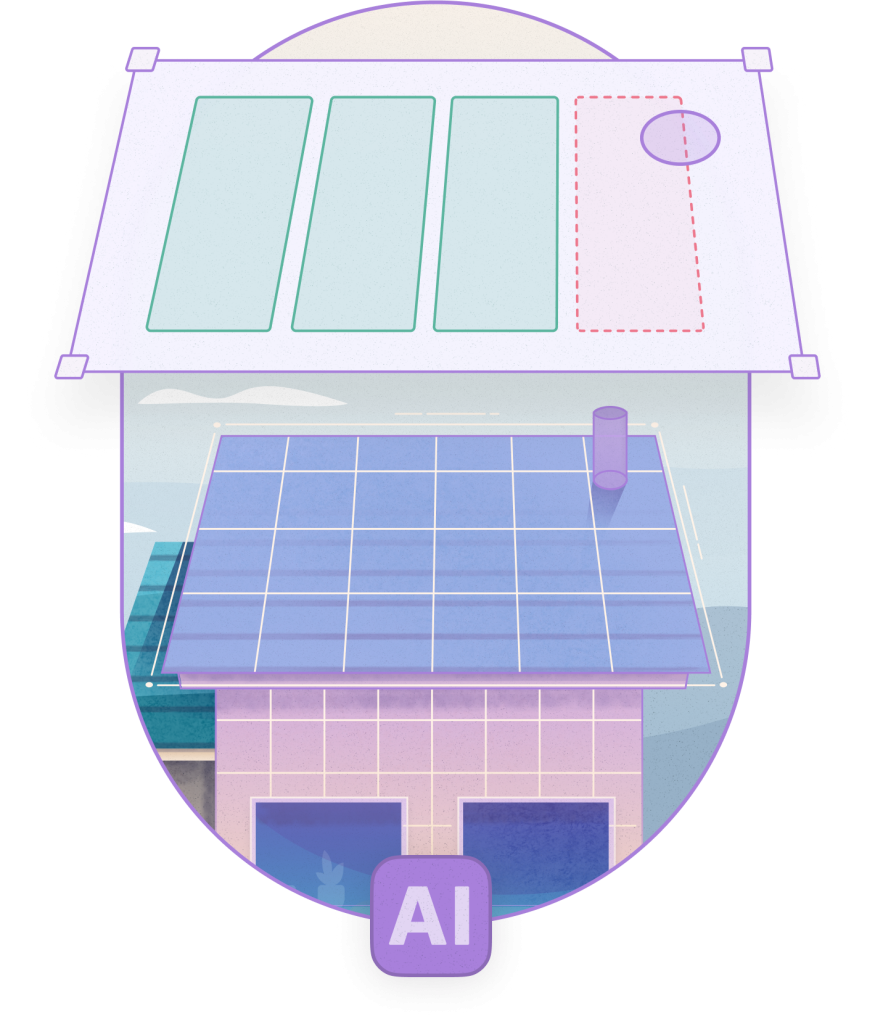
3. Our computer vision algorithm virtually places solar panels on your roof
Once our AI has a deep understanding of a roof’s orientation as well as any potential obstructions, it starts designing the system. Our computer vision algorithm places solar panels on the roof based on where they will be most efficient.
Once a homeowners signs up with Monalee, our in-house designers access the design our technology put together and make adjustments as needed. We’ve found that because our technology is so accurate in predicting exactly what solar will cost a homeowner, these initial designs are very close to what the final system will look like.
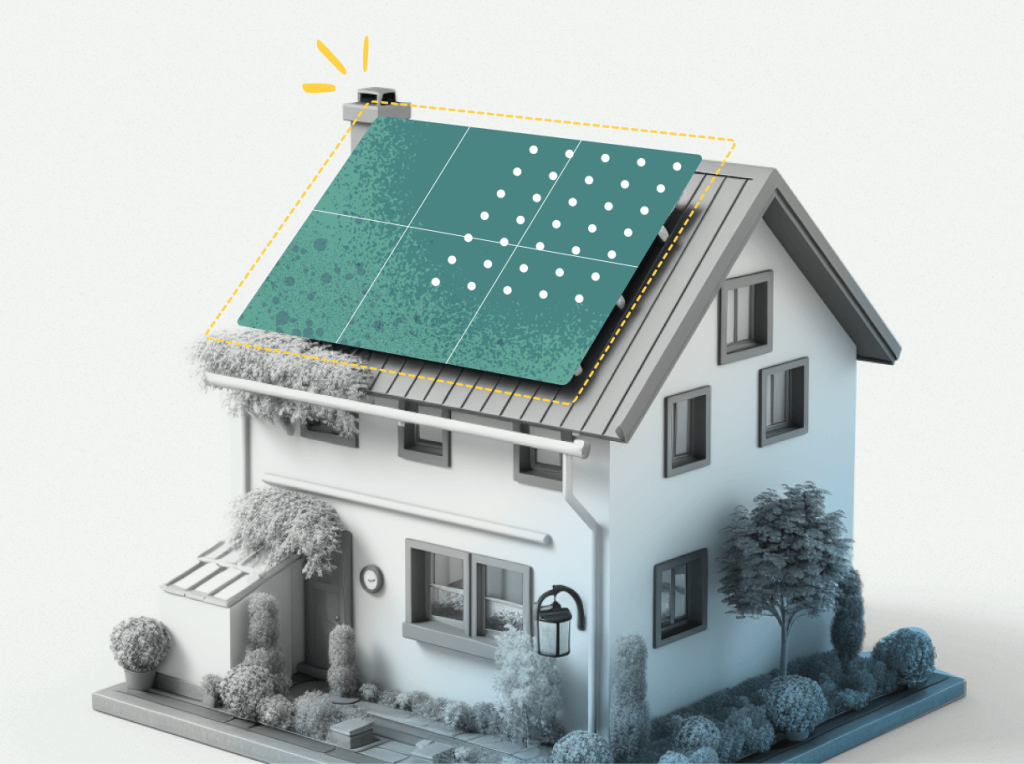
4. We run solar irradiance algorithms to see how much sunlight is hitting each area of the roof and optimize panel placement accordingly
Predicting how much sunlight a home gets is a crucial part of our technology. As an example, if there’s a particular tree that casts shade over an area of your roof, our technology will plan around that if possible and instead, place solar panels in unobstructed areas of the roof.
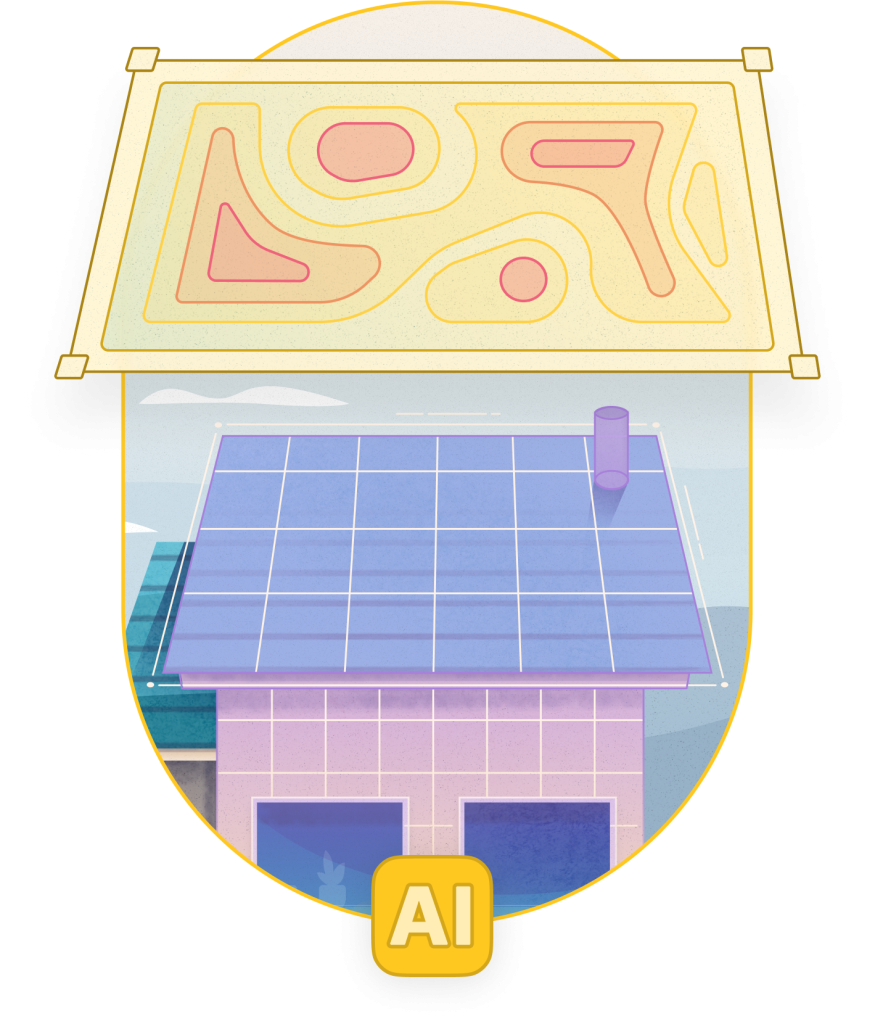
5. We layer in other essential info including financing options and federal and state incentives
Even though we’re able to offer solar at up to 50% less than other solar companies out there, we know that it’s still a big investment. This is why we make sure to include other important information, such as financing options–we partner with both Mosaic and GoodLeap–and what federal and state incentives apply.
Homeowners can see what their solar systems will end up costing them after the 30-percent federal solar tax credit is applied. They’ll also get an idea of when they can expect to see a return on their investment.
We’ve found that most homeowners who switch to running their homes on solar with Monalee recoup the total cost in as little as four to seven years.

